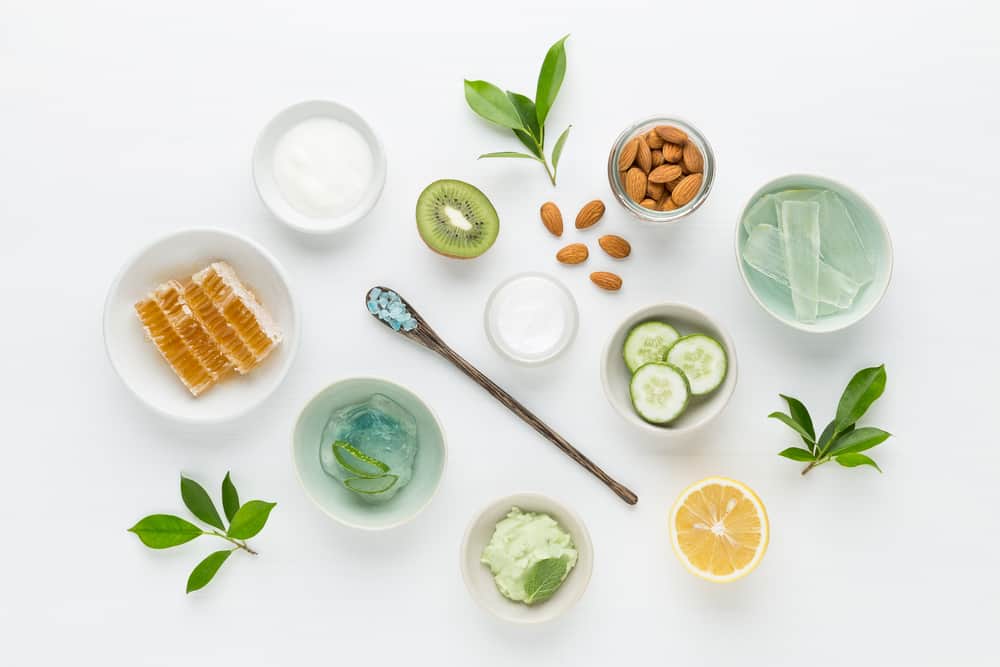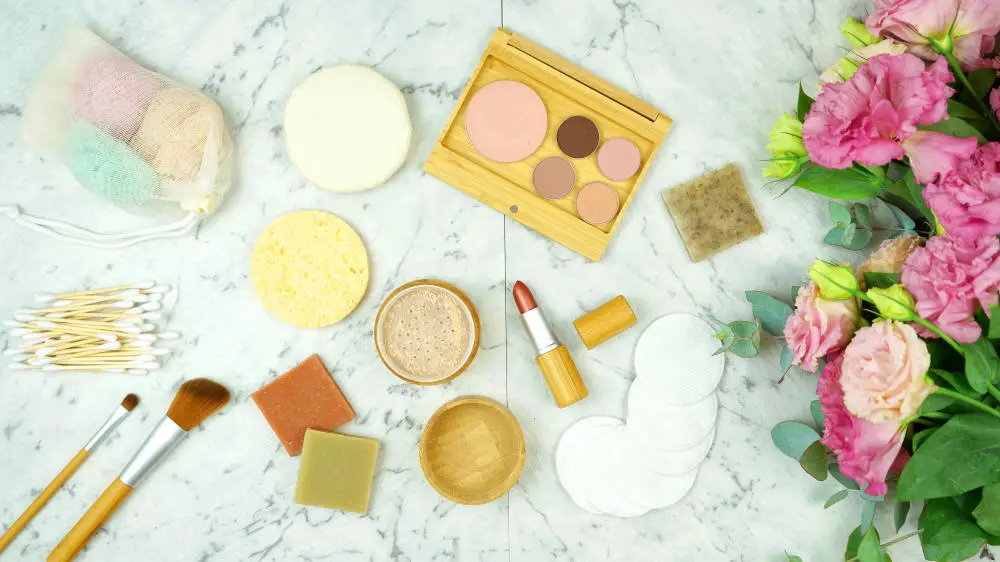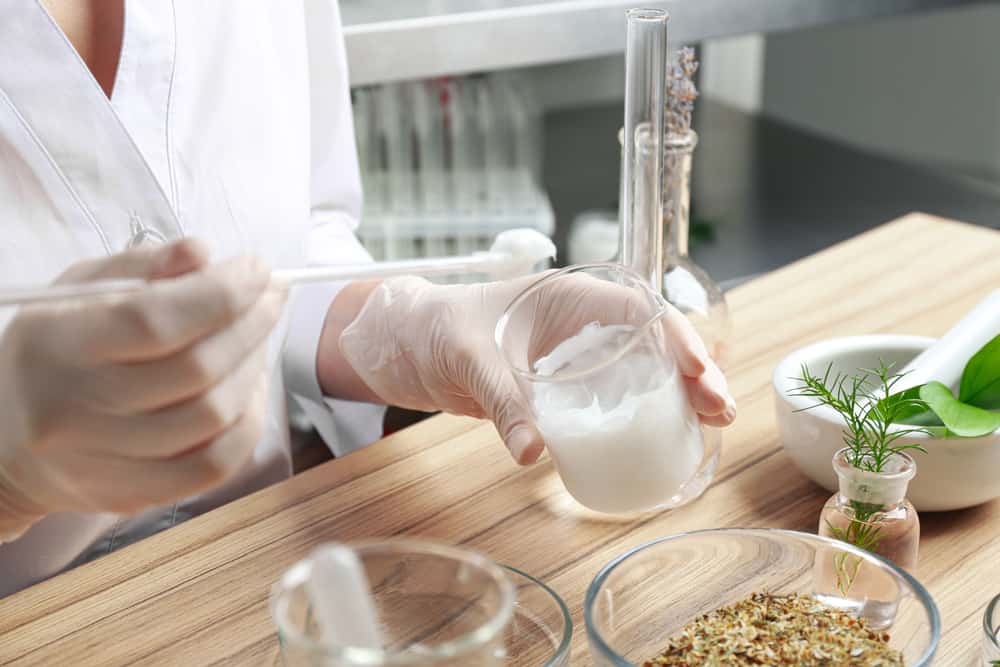Living a healthy life means paying attention to what goes into the products you use. Cruelty-free testing allows for more reliable results that are healthier for you.
These products are not only healthy, but they are great for the environment.
In a nutshell, cruelty-free products do not contain harmful chemicals, which are better for your skin and safer for the environment. New testing methods are faster, cheaper, and more predictive for humans than animal testing. Companies that don't test on animals are generally more concerned for your health and the environment than those that do.
Most of the time, you will find no chemicals or toxins in cruelty-free products. There are exceptions to this, but it is not common. Why should you care about this?
Chemicals and toxins can cause severe damage to your body. Did you know that a lot of mainstream brands contain harmful chemicals?
It's true, some of the most well-known brands, like Estee Lauder and L'Oreal, are guilty.
These companies use preservatives to increase the shelf life of their products. Mainly to prevent the growth of mold and bacteria which causes them to turn bad.
Parabens, sulfates, and synthetic dyes are just some of the toxic chemicals used in popular products.
You may not even be aware of how many toxins you put into your body a day using animal-tested products.
High quantities of the synthetic chemicals used in these products can lead to problems such as:
They Are Made From Natural Ingredients
You will notice that most cruelty-free products are composed of all-natural ingredients.
There are, of course, exceptions to this. But, for the most part, you will find an ingredient list packed full of natural ingredients at the back of each bottle.
Some common natural ingredients used, include:
The reason why most of the ingredients used are all-natural is because they have already been proven safe and gentle for human use.
Meaning that companies do not have to perform tests to prove that the ingredients used in their products are safe.
What Makes Natural Ingredients Healthy?
Natural ingredients are healthier for you than synthetic or chemical ones because they are made of naturally occurring elements in our environment.
People who use them are less likely to have adverse side effects unless they have a pre-existing allergy.
Natural ingredients are not known to cause cancers or other adverse health effects like some synthetic ingredients can.
Did you know there are over 7 000 cosmetic ingredients already proven to be safe? With such a variety – it is hard to understand why there is still a need for animal testing.
So why is there still a need for testing? The short answer is because of corporate greed.
It's no secret that the cosmetic industry is competitive. Companies are always looking at new ways of gaining a competitive advantage.
This is the main incentive in why they are testing new chemicals. They are trying to protect their profit margins and keep their shareholders happy.
They Are Better for the Environment
Not only are cruelty-free products better for you, but they are also better for the environment.
Animal-testing creates much more waste than cruelty-free sourcing does. You have to consider everything that goes into caring for the animals being tested, including:
Then consider all the chemicals being tested on these animals. After those chemicals are tested, they cannot be used anymore.
This creates even more chemical waste that needs to be disposed of correctly or it harms the environment and possibly people.
One major pharmaceutical company was responsible for 12 tons of waste in a single year.
Cruelty-free testing produces less waste because it relies on computers and human cells. Not only do these require less management and create vastly less waste.
But since they tend to be more natural, fewer chemicals are likely to be used – creating much less chemical waste too.
Regulations are also lower when companies are performing public safety tests. This means animal testing facilities get subjected to less stringent regulations.
Substance control measures only result in a small number of chemicals getting banned, so many harmful products still end up on store shelves even when dangers were found in the lab.
Animals also fall into a particular category because of these regulations, which means they are not protected by animal cruelty and abuse laws. This is unethical and another reason why many countries are against animal testing.
Lastly, going cruelty-free makes you more discerning in what products you buy. This minimalistic approach helps minimize waste.
You become more conscious about how much waste you are adding into the world. This helps to build a sustainable future for everyone, not just yourself.
Products Produced Are Better for The Environment
Since most of the products are naturally made, they end up being much safer for the environment.
For example, cruelty-free cleaning products that are all-natural release fewer chemicals into your house for your children or pets to get into.
Think about where all those harsh chemicals go when you clean your house. They make it into your water waste through:
A cruelty-free product does not use harsh chemicals most of the time, so you do not have to worry about its effect on the environment. You also do not have to worry about trying to dispose of possible chemical waste properly.
Cruelty-Free Testing Meets A Higher Standard
Cruelty-free testing ensures the products are safe for actual human beings, not just animals that react similarly to humans.
Wouldn't you want your products to be specifically tested for your body, not only on animals that may have close to the same reactions as you do?
There are multiple options besides animal testing, and these include:
Cell Culture Product Testing
Cell culture testing involves growing different types of cells in a laboratory to create miniature organs and other 3D structures.
The products are then tested on the systems that are essentially different parts of a human body.
Testing Products Using A Computer Model
Computers can now model different parts of the human body and then run virtual tests based on existing data.
Using Human Tissue to Test Products
Volunteers can donate human tissue from:
This tissue is used to create models of different parts of the body, such as the eyes, which can then be tested.
The four-hour patch test is the perfect example as it can provide data that is superior to the same test done on rabbits, in a much shorter time frame and with none of the abuse to the innocent bunny.
Volunteering for Product Testing
Humans can volunteer for product testing. Different ways of safely testing volunteers include:
For studies that are less high-tech, participants can simply experience the products firsthand once consent is given. These sorts of tests are done for products that involve:
Alternative Testing Is More Accurate
All these processes are much more accurate than animal testing because they need to meet a standard of accuracy to be used.
So they need to be at least as accurate, preferably more than animal testing.
Animal testing does not have to meet any standards of accuracy and is usually done because it is a less expensive alternative to these options.
One test, the "CAESAR," has been credited with a 90% accuracy in predicting human reactions. Would you rather trust a doctor who is 90% accurate or one that is only 40%-60% accurate? Exactly, so why are we still using inferior research methods?
Another massive pro is that these new and advanced tests are conducted in a much shorter time frame.
For example, the in vitro skin and eye irritation test can be done in a day. In comparison, the same test needs two to three weeks when the test uses rabbits.
Animal Testing Is Unreliable
Animal testing is nothing new; it has been around for more than 70 years. What is frightening is to this day, there still is no scientific validation process in place.
Yes, that's right. The validation of these tests is based on how long they have been in use. There is no scientific process that determines how safe they are for humans.
Animal testing is not nearly as accurate as alternatives. This is because you test bodies and skin types that react similarly to humans, but not exactly like humans.
Most of the time, when we think of animal testing, we think of rats.
However, when rats are used to determine if chemicals or drugs are safe for a developing baby, the test is only 60% accurate, whereas the cell-based test is 100% accurate.
An example being the "repeated-dose" method, which is still in use today.
This is a test whereby animals are forced to inhale or have substances rubbed into their skin. The toxic products are often used over a 28 or 90 day period before that animal is killed.
The infamous skin irritant test on rabbits is only 60% accurate, while using human tissue is 86% accurate.
Guinea pigs are often tested for skin allergies, but the results are only 72% accurate. In comparison, a cell-based alternative is 90% accurate.
No matter the type of animal or test, alternative methods are always much more accurate. Wouldn't you rather use a product that you were 100% sure was safe rather than just 60% sure?
This is why so many countries worldwide, like the whole of the EU, have banned animal testing.
So Why do we still use animal testing?
There is some science around animal testing, though. Humans and animals are different, but genetically we are similar.
For this reason, companies still want to be able to test on animals as the data collected from animals can often be used on humans.
Another critical factor is that animals also have shorter life cycles than humans.
Although this allows researchers to test products throughout an animal's life cycle and provide better data – it's often at the expense of many animals' lives.
Although technological advancements have made testing on animals more humane, there is still no need to conduct tests on animals when alternative testing methods exist.
Especially when many these tests end up with dead animals or ones that have to be euthanized after resting.
Companies Who Care About Animals Care About People
Companies that care about the health and wellbeing of animals tend to be more empathetic. They value the animal's lives and therefore are more likely to value yours.
A company that uses animal-testing knows that there are more accurate ways of testing that would make the products safer for you but choose to stick to the old, outdated way of testing.
They are willing to put their profit-margins above your wellbeing.
Cruelty-free companies focus more on sustainable ingredients and materials. This includes their physical products, and many even make their packaging greener. These companies often are looking at innovative ways to reduce their carbon footprints.
So, by buying their products, you are forcing animal testing brands to follow suit. Otherwise, these brands would become obsolete.
A lot of cruelty-free companies donate money when you purchase their products.
These donations fund organizations that support good causes – so why not help companies that donate a portion of their profits to benefit society as a whole?
Making the Healthy Switch to Cruelty-Free Products
We use a wide range of products daily that go through safety testing. You should choose to buy your products from a company that cares about the accuracy of its tests.
Companies that care more about the money they could save using animal testing don't have your best interests at heart.
From beauty products to house cleaners and everything in between, be aware of your product choices.
Cruelty-free options are safe for you and the environment and help get you on track for a happier and healthier life.




